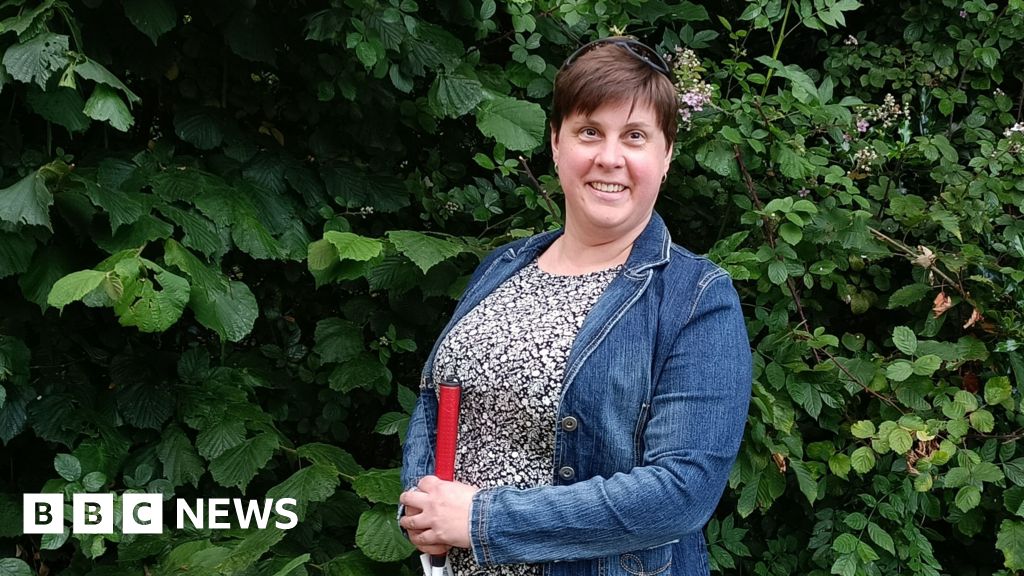How AI is Transforming Lives: A Closer Look at Assistive Technology for the Visually Impaired
Empowering Individuals with AI
“AI has revolutionised my daily life,” shares Louise Plunkett, a resident of Norwich who has been living with Stargardt disease, a genetic condition that leads to progressive vision loss. Louise’s story is not just about her struggles with sight; it’s about how innovative technology has opened new doors for her independence.
Living with partial blindness, Louise faces challenges that many of us take for granted, like recognizing family members or navigating public spaces. “I can’t recognize people, even my own husband or my children,” she explains. These challenges were particularly pronounced when her children were younger, needing to learn to approach her in busy environments, like the school playground. Despite these obstacles, Louise has found solace in technology, particularly in assistive AI services.
Harnessing AI for Daily Tasks
Louise is no stranger to digital tools. Her professional life involves consulting on digital accessibility for companies, ensuring that online content is user-friendly for the visually impaired. She’s effectively navigated the world of AI with tools like Alexa, Google Home, and Siri to assist her in daily tasks from setting alarms to checking the weather.
Now, she’s enthusiastic about her latest discovery—an app called Be My AI. Fueled by ChatGPT technology, this app enables users to obtain detailed descriptions of images, read food labels, or even navigate public spaces without needing to ask someone for help. “I’m quite a stubborn person,” she admits. “Using the AI tool is useful for things when other humans aren’t around.”
While AI enhances her independence, Louise acknowledges that it isn’t flawless. “Sometimes it gives too many details,” she comments. “Sometimes you just want the basic information, not an elaborate description with mood and emotions.” This balance between helpfulness and excess is something many users grapple with.
Be My AI: A Game Changer
Developed by Be My Eyes, the Be My AI app has attracted a user base of over 600,000 individuals, with some users preferring it to human assistance. Jesper Hvirring Henriksen, the company’s CTO, notes that many users have taken to using the app for tasks they hadn’t anticipated, like deciphering images sent in WhatsApp groups.
Looking to the future, he envisions advancements like live streaming that could narrate environments in real-time—a tool that could change the game for visually impaired individuals. “It’s like having a little person in your pocket all day telling you what is going on,” he suggests.
AI-Powered Innovations Beyond Be My AI
The realm of assistive AI isn’t limited to apps. Products like WeWalk are setting a new benchmark in mobility aids. This smart cane is equipped with voice assistants that detect obstacles and provide accessible navigation. It connects to a smartphone app, offering updates about nearby locations, including cafés in over 3,000 cities. Gamze Sofuoğlu, WeWalk’s product manager, highlights how this technology symbolizes independence for visually impaired individuals.
Robin Spinks, head of inclusive design at the Royal National Institute of Blind People (RNIB), uses AI tools daily to streamline his workflow and enhance his productivity. He believes 2024 will usher in an era of “multimodal AI,” blending text and visuals to extract meaningful information. “The benefits are too great to ignore,” he asserts, voicing concern for those hesitant about AI.
Conclusion: The Evolution of Assistance in Daily Life
Advancements in AI are undeniably changing the landscape for those living with visual impairments. Encouraging self-reliance, facilitating communication, and enhancing mobility, tools like Be My AI and WeWalk embody the power of technology to enrich lives. They demonstrate how, with a bit of creativity and innovation, the challenges posed by disability can be met with intelligence and resourcefulness.
As we continue to observe these developments, there’s no telling how far AI can go in reshaping our world. The AI Buzz Hub team is excited to see where these breakthroughs take us. Want to stay in the loop on all things AI? Subscribe to our newsletter or share this article with your fellow enthusiasts.




